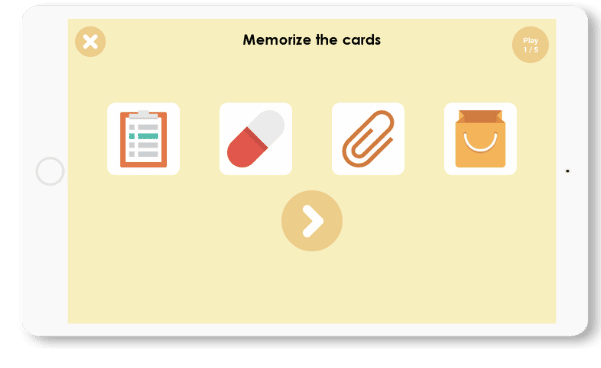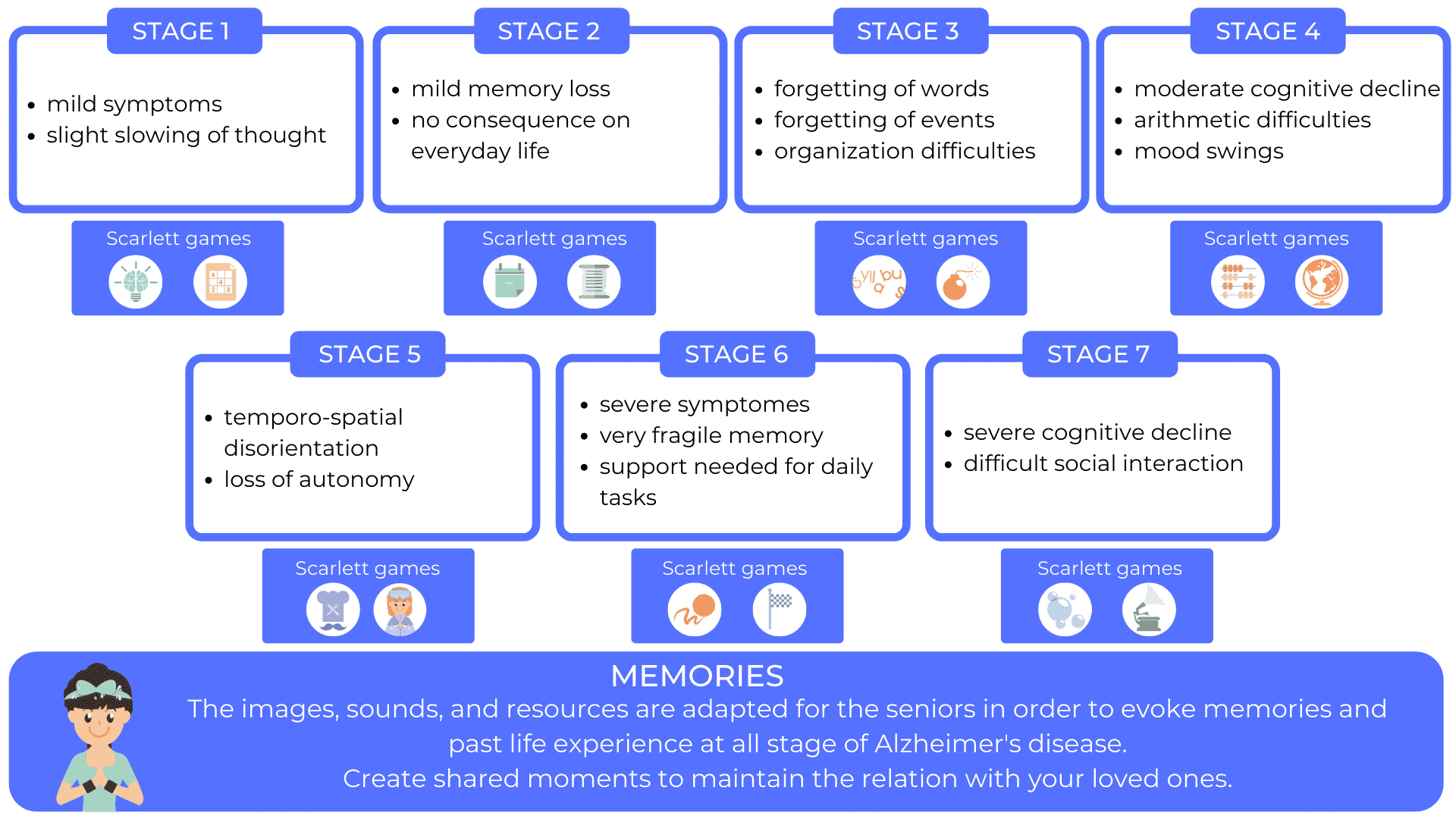As we age, the brain’s ability to remember past events can gradually deteriorate, leading to language and behavioral disorders. Many seniors in France and Europe now have Alzheimer’s disease. Memories slowly fade, verbal and written communication becomes increasingly difficult and problems intensify from day to day…
… A speech-language pathologist’s intervention at this stage can limit the brain’s degeneration and improve its ability to remember past events, people, facts… Suzie, our brain coach, will explain in detail the speech-language pathologist’s benefits in treating Alzheimer’s disease and the best available options.
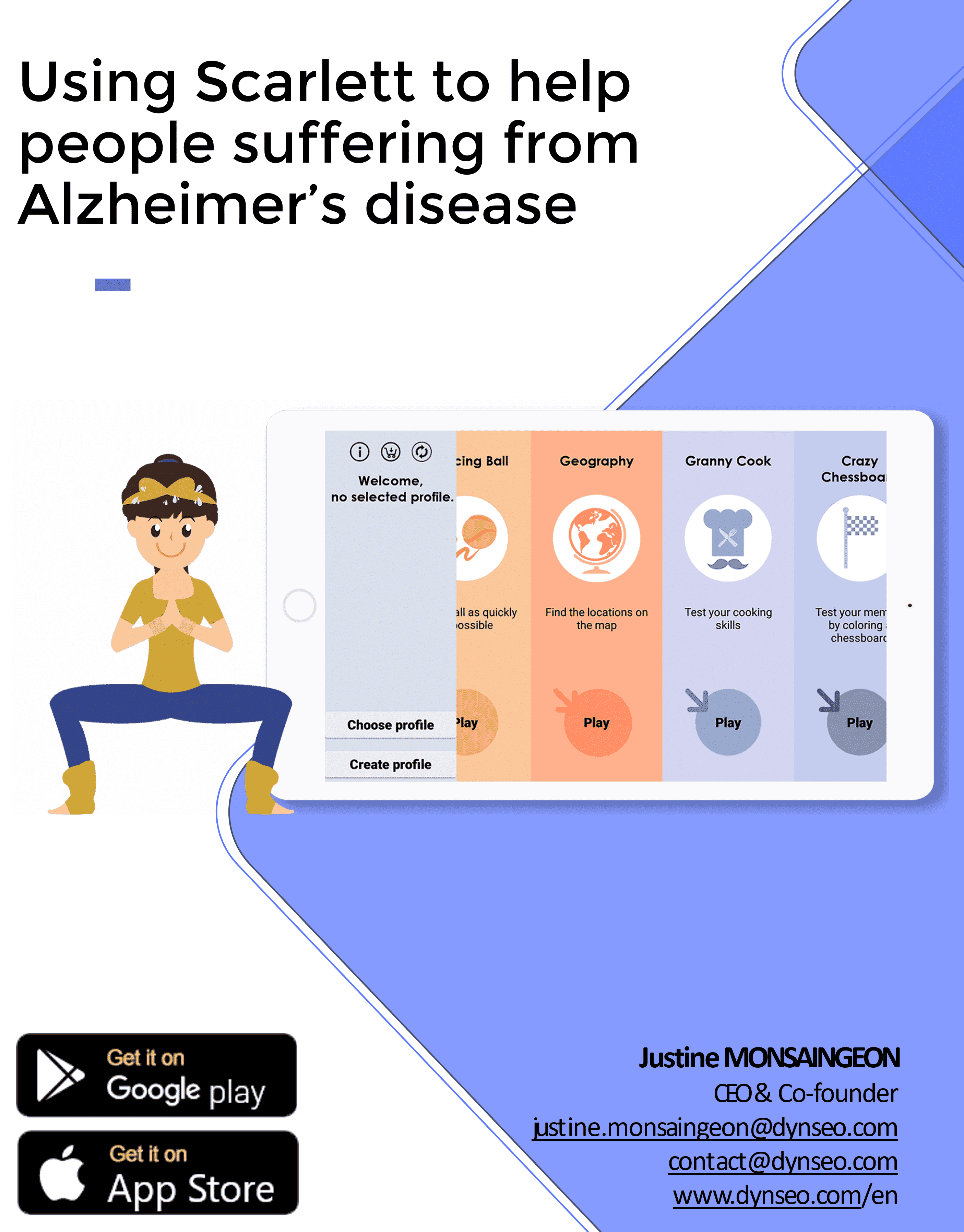
WHAT IS SPEECH THERAPY?
It is not always easy to understand what how speech therapy works and how it can benefit people with Alzheimer’s disease. Speech therapy, or orthophony, aims to treat behavioral and written language disorders. Its name originates from the combination of two words “ortho” and phony” which mean ” right ” and ” voice ” respectively.
Speech therapy treats speech and written language disorders, but also hearing and swallowing disorders. A speech therapist performs a series of tests to identify the main causes of the disorders and then suggests tailor-made solutions so that the patient can easily regain his or her memory. One solution is Scarlett, the memory games app on tablet.
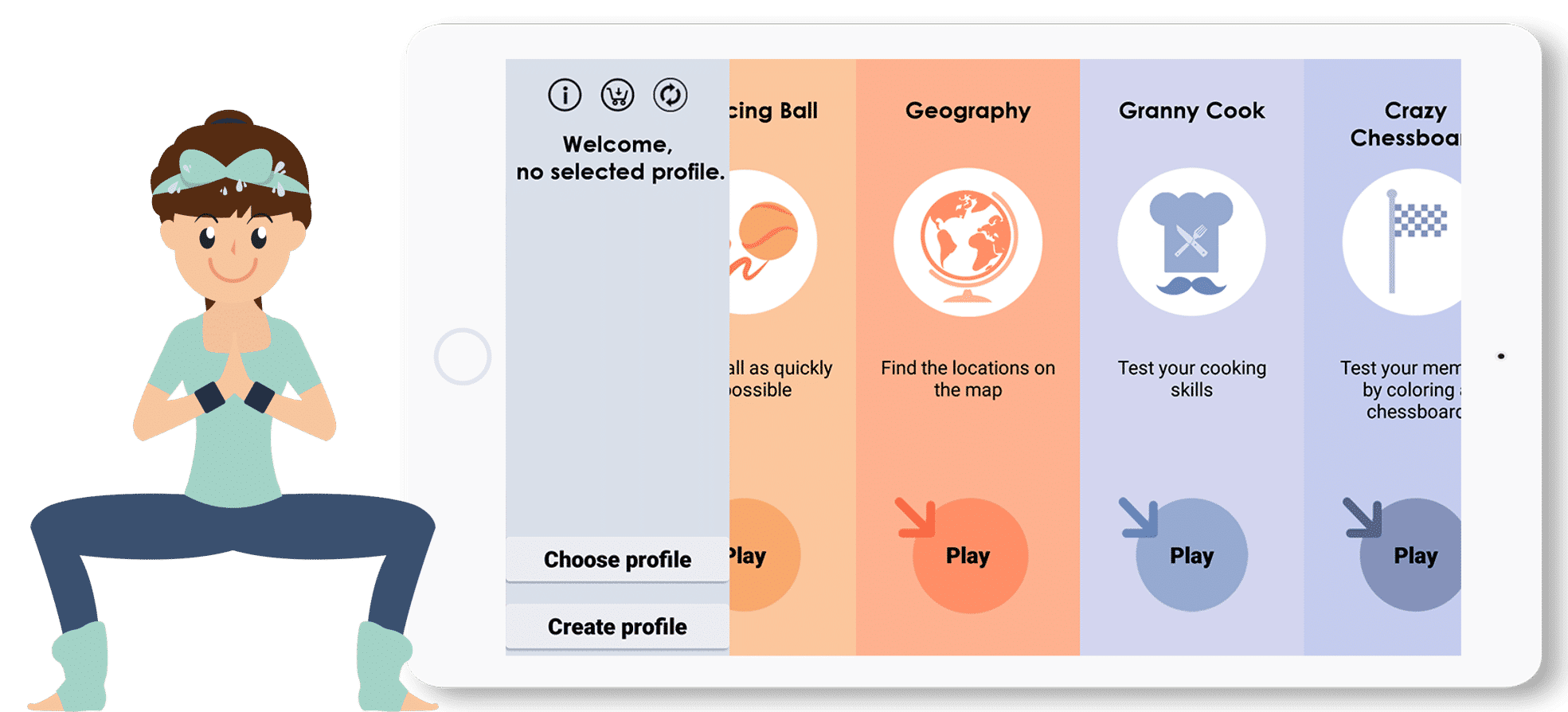
SPEECH THERAPY & ALZHEIMER’S: THE MAIN BENEFITS
In response to the difficulties that people with Alzheimer’s disease face, speech therapy provides a reliable method to provide the help these people need. This preventive action is a slow corrective process rather than a sudden restoration of all memory loss.
Suzie, our brain coach, describes speech therapy as a set of language supports on which the patient can rely to learn to communicate again with people. This method seeks to slow down the evolution of language degression as soon as possible. At best, patients will be able to recover their memories and language fluency, at worst, degression is slowed down. In any case, speech therapy is beneficial for people with neurodegenerative diseases such as Alzheimer’s. This study shows the main benefits for communication.
ADDRESSING WRITTEN LANGUAGE DIFFICULTIES
Above all, a speech therapist helps the patient by offering treatments to treat written language disorders. A person with Alzheimer’s may have trouble writing words correctly and remembering them. A speech therapist provides tailor-made guidance to help the person recover their understanding of the alphabet, word morphology and segmentation.
Syllabus
In this game, the person has to form words out of the proposed syllables.
With this game, you can stimulate metaphonological skills and word analysis.
The person first needs to create a mental image to try and combine the syllables and use its semantical memory to find the words.
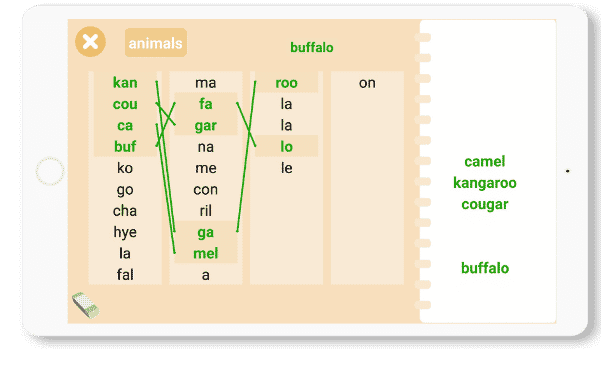
ADDRESSING ORAL LANGUAGE DIFFICULTIES
While it is quite difficult to identify written language disorders in Alzheimer’s patients, it is different with oral language difficulties. In fact, oral disorders are much easier to identify than written language impairments. By talking with the patients, a speech therapist can perform tests to quickly understand their oral language challenges. Whether it is stuttering, lisping or pronunciation errors, the solutions provided in speech therapy improve the articulation of words and make them more fluid and understandable.
A Text A Day
In this game, the person reads a new excerpt of a text each day.
Here, the person can improve her reading rythm and word pronounciation.
After having read, you can chat with the person to help her form structured sentences and improve her speech.

ADDRESSING HEARING AND SWALLOWING DIFFICULTIES
A speech therapist can provide treatment for hearing and swallowing disorders that people with Alzheimer’s disease often have to deal with. In fact, this neurodegenerative disease can affect a person’s ability to hear and understand others. From this perspective, this method is especially useful in improving their ability to communicate.
In some cases, Alzheimer’s disease can cause swallowing disorders due to muscle dysfunction. A speech therapist offers compensation strategies to improve swallowing ability and general health.
The Musical Ear
In this game, the person listens to different sounds (animals, everyday life sounds, musical instruments…) and has to guess the right one in the propositions.
With this game, you can stimulate auditory discrimination, that often weakens with Alzheimer’s for example.
By improving this cognitive function, word recognition becomes easier. Moreover, the person, after having found the right sound, has to find the word corresponding to the sound. They are also working on their vocabulary and meaning of words.
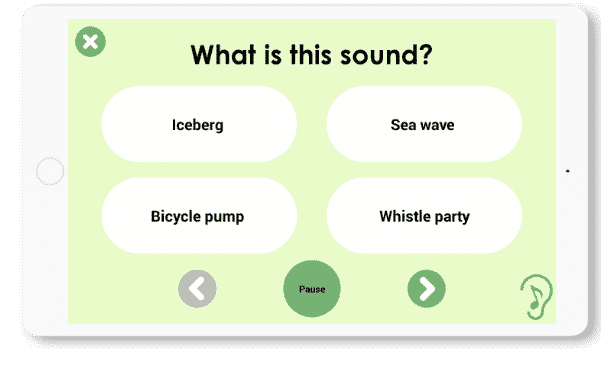
WHAT HAPPENS DURING A SESSION IN SLP SESSION?
Rehabilitation sessions with a speech therapist become indispensable as soon as a person is diagnosed with Alzheimer’s disease. These sessions are designed to maintain the level of language and communication of the patient.
Speech therapy uses sustainable solutions to stimulate the patient’s cognitive abilities and help them identify areas that they find difficult to memorize. First, the speech therapist receives the patient and the family. The purpose of this meeting is to gather as much information as possible about communication patterns before the onset of Alzheimer’s symptoms. The therapist then assesses the patient’s cognitive functions through several tests. At the end of these tests, the therapist determines their ability to remember past or recent events, to catch their gaze, to listen to other people’ responses, to start or continue a conversation…
Once the session is over, the speech therapist then proposes a therapeutic program that meets the patient’s current needs in order to treat written and oral language disorders in the short, medium and long term. The program focuses on providing advice on how to handle everyday life and techniques to maintain memory.
Suzie, our brain coach, says that treatment by a speech therapist is fully reimbursed when a person is diagnosed with Alzheimer’s disease. Good examples of therapeutic programs include Scarlett.
SCARLETT, ADAPTED MEMORY GAMES ON TABLET
Scarlett provides an excellent solution for people with Alzheimer’s disease by offering a range of programs adapted to seniors. The program adapts to the needs of patients with memory disorders. Regardless of the disease’s progression, Scarlett provides progressive support on three levels: easy, medium and difficult.
Scarlett is used in many nursing homes all over the world, in centers that welcome seniors and even at home. These memory games are available to the general public and more than twenty games are already available that can be played on a tablet: Quizzle, Lost poem, ColorForm, Hunting Intruders, Sudoku, Granny Cooks. Each game aims to slowly develop memory using predefined themes which may be relevant to people with Alzheimer’s disease.
In addition, Scarlett makes it possible to track the patient’s progress as they play the various games on offer. This way, not only can they have fun answering different questions, their cognitive abilities will also improve.
Furious Cards
In this game, the person has to memorize the order of a series of cards.
Each card has a different image. With this game, you can stimulate different types of memory: short-term memory, visual memory as well as semantic memory. Speech therapists mainly focus on the latter.
To work on semantic memory, you can ask the person to name the images and remember the order of the words rather than the images.
